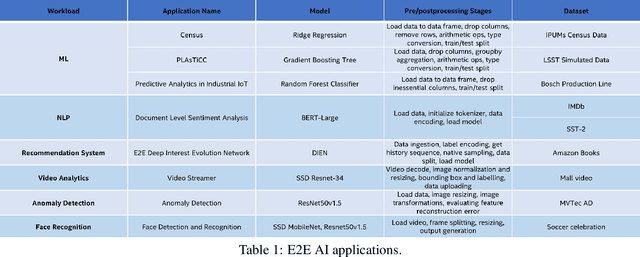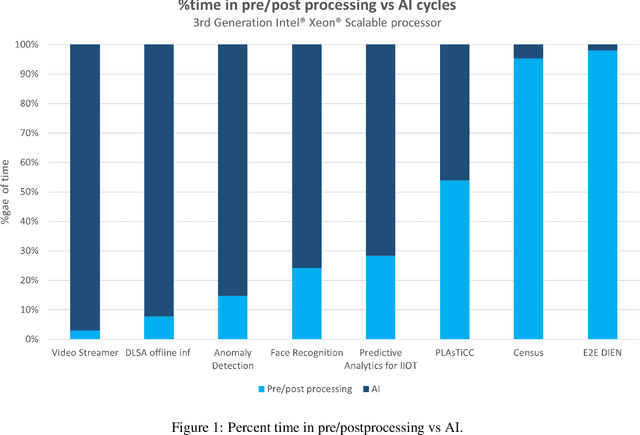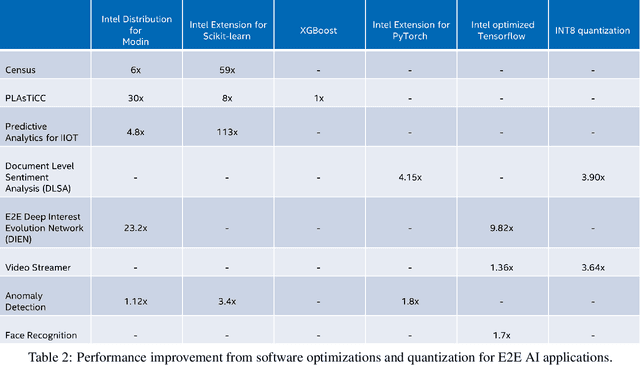Strategies for Optimizing End-to-End Artificial Intelligence Pipelines on Intel Xeon Processors
Paper and Code
Nov 01, 2022



End-to-end (E2E) artificial intelligence (AI) pipelines are composed of several stages including data preprocessing, data ingestion, defining and training the model, hyperparameter optimization, deployment, inference, postprocessing, followed by downstream analyses. To obtain efficient E2E workflow, it is required to optimize almost all the stages of pipeline. Intel Xeon processors come with large memory capacities, bundled with AI acceleration (e.g., Intel Deep Learning Boost), well suited to run multiple instances of training and inference pipelines in parallel and has low total cost of ownership (TCO). To showcase the performance on Xeon processors, we applied comprehensive optimization strategies coupled with software and hardware acceleration on variety of E2E pipelines in the areas of Computer Vision, NLP, Recommendation systems, etc. We were able to achieve a performance improvement, ranging from 1.8x to 81.7x across different E2E pipelines. In this paper, we will be highlighting the optimization strategies adopted by us to achieve this performance on Intel Xeon processors with a set of eight different E2E pipelines.
 Add to Chrome
Add to Chrome Add to Firefox
Add to Firefox Add to Edge
Add to Edge